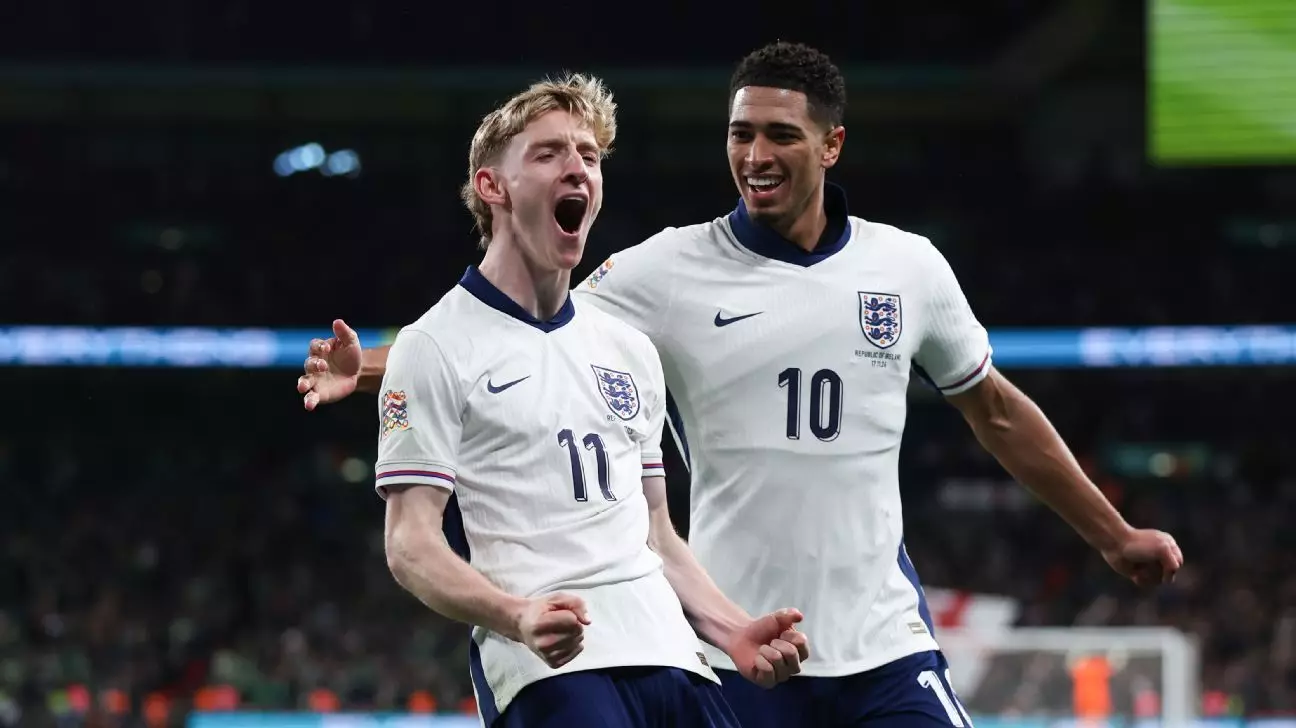As Thomas Tuchel takes the helm of the English national football team beginning January 1, the landscape of international football will witness a significant transformation. While the England team has shown promise under Gareth Southgate and interim coach Lee Carsley, the emphasis now shifts to a singular objective: securing victory at the 2026 World Cup. The team’s recent 5-0 drubbing of the Republic of Ireland points towards a burgeoning sense of confidence and capability amongst the players. However, as Tuchel steps into his role, the challenges ahead are complex and multifaceted, requiring not just tactical adjustments but also an evolution in team dynamics and mentality.
Transitioning from Southgate’s Era
The departure of Gareth Southgate marks the end of an era, during which England reached two consecutive finals at the UEFA European Championship. Though Southgate’s contributions to reviving England’s competitive spirit are undeniable, Tuchel’s arrival ushers in a new approach. His brief 18-month contract signifies a laser focus, steering the team towards immediate results rather than fostering long-term development. Yet, the question looms: can Tuchel replicate or perhaps enhance the positive culture Southgate instilled, particularly in the context of high-stakes tournament scenarios?
Tuchel’s tactical acumen is a notable upgrade, characterized by his adaptable strategies developed during his time at Chelsea. Historically, he often deploys formations like 4-2-3-1 and 4-3-3, which may diverge from Southgate’s more conservative tactics. This shift raises critical questions about the playing style that will best leverage the talents of key players like Harry Kane, who remains essential as England’s leading goalscorer. Can Tuchel harmoniously integrate Kane’s game into a more aggressive and dynamic philosophy?
Harry Kane’s commitment to the England team remains unwavering, highlighted by his recent remarks about the culture of commitment necessary to represent the national squad. His experience and leadership are invaluable, but Tuchel must assess how to utilize Kane effectively, especially as emerging players such as Ollie Watkins strive for greater prominence in the team. The challenge lies in aligning Tuchel’s preferred high-press, fast-paced gameplay with Kane’s more traditional striking style, which often involves deeper involvement in build-up play.
Additionally, the influx of younger players into the squad, facilitated through Carsley’s tenure, has revitalized competition within the team. However, one of Tuchel’s first orders of business will be to establish clear roles and expectations as he looks to build a cohesive unit capable of handling the immense pressure of international tournaments.
Throughout previous campaigns, England has exhibited a notable deficiency in midfield control, which has often hindered their ability to maintain possession in crucial moments. The need for a metronomic presence in midfield has become increasingly apparent, as evidenced by their strategic failures in high-stakes matches against top teams like Italy and France. Tuchel will be tasked with identifying the right personnel to solidify this area, particularly given that both Lee Carsley and Harry Kane emphasized the need for greater game control.
While players like Conor Gallagher and Declan Rice have shown promise, the England setup still lacks that defining midfielder who can orchestrate play in the vein of elite competitors such as Rodri or Marco Verratti. Tuchel’s tactical flexibility may enable him to explore various combinations, perhaps even testing unorthodox formations that could optimize the available talent pool.
A pivotal aspect of Tuchel’s approach will be to maintain the positive culture established under Southgate, a responsibility that should not be underestimated. Kane’s sentiments regarding the importance of commitment resonate deeply within a squad that has seen its share of withdrawals and disruptions. Tuchel must cultivate a renewed sense of unity and purpose as he integrates his tactical philosophy with the existing team spirit. This balance will be key to unleashing the potential within this group, especially as they look to end a 60-year drought for trophies.
Retaining influential figures like Kane, Declan Rice, and Jude Bellingham while also fostering an environment where younger talents feel encouraged to flourish will be a tough but necessary balancing act. Tuchel’s success will hinge on his ability to synergize the squad, ensuring that tactical precision doesn’t come at the cost of morale and camaraderie.
Ultimately, Tuchel’s singular mission to secure the 2026 World Cup will redefine the current narrative surrounding English football. His experience and tactical insight put him in a strong position to lead this team, but it will require a dedicated effort to cultivate not just tactical proficiency but also an unwavering belief in their ability to triumph on the world stage. Engaging England’s depth of talent, fostering adaptability, and instilling a culture of relentless ambition will be the cornerstones of his tenure, transcending the lessons learned from past failures while building towards a brighter future.
As Tuchel embarks on this journey, fans and players alike will be holding their breath, hopeful for a resurgence that will reshape England’s international fortunes once and for all.

Leave a Reply